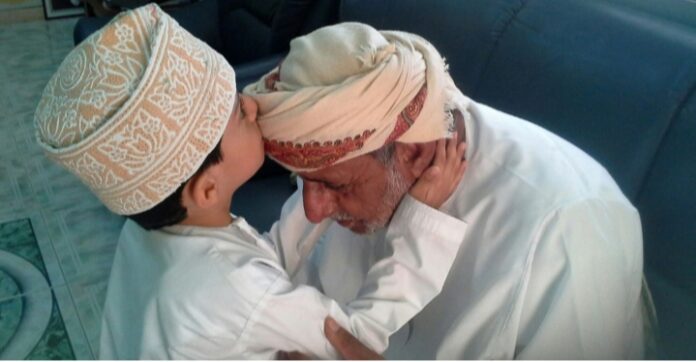From Gratitude to Paradise: The role of children towards their parents in Islam
Last week, we discussed the role of parents on their children in Islam with reference from the Qur’an and Hadiths. Now we turn to the equally important responsibility of children towards their parents. In Islam, this relationship is regarded as one of the most sacred bonds in human life.
Just as parents have duties towards their children, children also carry significant responsibilities towards their parents. These obligations are not limited to childhood but extend throughout one’s entire life, reflecting gratitude, kindness, and obedience. The Qur’an and Hadith emphasise that serving and honouring one’s parents is a fundamental act of worship, second only to the worship of Allah.
The Qur’anic Emphasis on Obedience and Kindness
The Holy Qur’an repeatedly commands children to treat their parents with respect and compassion. Allah says:
“And We have enjoined upon man [care] for his parents. His mother carried him, [increasing her] in weakness upon weakness, and his weaning is in two years. Be grateful to Me and to your parents; to Me is the [final] destination.”
(Surah Luqman 31:14)
This verse reminds children that gratitude to parents is directly linked with gratitude to Allah. The Qur’an also commands kindness especially when parents reach old age:
“And lower to them the wing of humility out of mercy and say, ‘My Lord, have mercy upon them as they brought me up [when I was] small.’”
(Surah Al-Isra 17:24)
Thus, children are obligated to show gentleness, humility, and supplication for their parents, especially during their later years.
The Hadiths on the Virtue of Serving Parents
The Prophet Muhammad (peace be upon him) stressed the importance of dutifulness towards parents. A man once asked the Prophet (ﷺ), “Which deed is most beloved to Allah?” He replied: “Prayer at its proper time.” The man asked, “Then what?” He said: “Kindness to parents.” The man asked, “Then what?” He said: “Jihad in the cause of Allah.”
(Sahih al-Bukhari, Sahih Muslim)
This shows that after worship, serving parents holds one of the highest positions in Islam.
Another Hadith states:
“Paradise lies under the feet of mothers.”
(Sunan al-Nasa’i, Musnad Ahmad)
This highlights that serving and honoring one’s mother, in particular, is a direct means to earn Allah’s pleasure and Paradise.
READ ALSO: Guides, Protectors, and Role Models: The duty of parents in Islam
Specific Duties of Children Towards Parents
Obedience in What is Lawful – Children must obey their parents in all matters that do not contradict the commands of Allah.
Respect and Good Speech – The Qur’an forbids children from even uttering a word of irritation such as “uff” to their parents (Surah Al-Isra 17:23).
Financial and Emotional Support – If parents are in need, children are obliged to support them materially and emotionally.
Supplication for Them – Constantly making du’a for their health, forgiveness, and mercy even after their death.
Maintaining Ties After Their Death – The Prophet (ﷺ) said: “The best form of dutifulness is for a man to uphold the ties of kinship with those loved by his father after he has passed away.”
(Sunan Abu Dawud)
In conclusion, in Islam, the role of children towards their parents is one of love, service, and respect. Honoring one’s parents is not merely a social obligation but a spiritual duty tied directly to faith.
By caring for them, obeying them in righteousness, and making continuous du’a for them, children fulfill one of the greatest acts of worship. Indeed, Allah’s pleasure is found in the pleasure of parents, and His displeasure in their displeasure.
Follow the Neptune Prime channel on WhatsApp:
Do you have breaking news, interview request, opinion, suggestion, or want your event covered? Email us at neptuneprime2233@gmail.com





